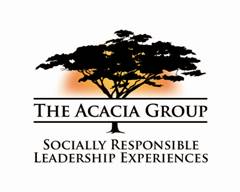To Develop Cultural Competence - Engage! Engage! Engage!
Dissonance in the Highlands of Guatemala
Mar 31, 2010 8:48 AM ET
The Acacia Group - Socially Responsible Leadership
This is the second post in a series that examines the features a study of CSR, Community and Leadership Development and how it plays out in a small community in Guatemala.
There is an organizational truism that has been quoted frequently over the years - `when culture and strategy collides, culture wins every time’. The best designed and well intentioned strategy can fail or fall short of expectations – including an organizations CSR strategy – if culture is not attended to. Edgar Schein, a renowned organizational theorist states that `the bottom line for leaders is that if they do not become conscious of the cultures in which they are embedded, those cultures will manage them’. When we are placed in situations or experiences that are significantly different from our normal operating environment – for example in a cross cultural community - the culture becomes more visible to us. When we are in this completely unfamiliar setting, we become more objective about what we see that contributes to the culture– for example the patterns of interactions, stated and unstated values, customs and rituals, language, and metaphors and symbols. When we are guided in the process of examining what we are seeing, illuminated by the light of our own assumptions and values, we gain a greater understanding of our biases. The process of examining our biases leads us back to an exploration of our values and assumptions and how they influence our decisions, choices and understandings. The Acacia Group’s socially responsible leadership experiences are premised on taking advantage of the bright light that shines on our values and assumptions when we enter a community that is culturally different than our own. One of our host communities is Nebaj Guatemala. Nebaj is located in the north central region of Guatemala and is home to a significant Maya population. The people of Nebaj speak little Spanish (the main language of Guatemala), but rather speak the native Ixil dialect. Life in Nebaj still reflects a culture that predates the Spanish influence and domination of Central America. The agricultural based lifestyle continues today along with the traditional activity of weaving. The history of the Ixil has been further impacted more recently by the 1980’s Guatemalan civil war when the surrounding hills were invaded by the Guatemalan army. The practice of genocide and other atrocities committed against the indigenous people caused thousands of the Ixil to flee the highlands while others were kidnapped and disappeared. Both history and geography has shaped the community that we see today. Entering into the town of Nebaj the learner is prompted to hold open their assumptions and to carry questions of inquiry: How has this culture survived? How would the observer describe the interaction, values and beliefs that guide relationships within the community, who helps whom and why, how is product distributed? How does the community hang together? Do we observe cooperation and conflict, the impact of internal and external changes, consensus and coercion? What assumptions am I making about the culture? How do I enter into this community or any other community? How do I obtain acceptance, credibility, or the right to participate? In exploring these questions, the learner/leaders participating in the socially responsible leadership experience builds the capacity to see the cultures that exist around them in their day to day life. The leader gains new insights and skills to help them observe and interact with the cultures in their own organizations. If it is true that when culture and strategy collides, culture wins every time – then developing cultural competencies is an important part of an effective leader’s development. AG5740
